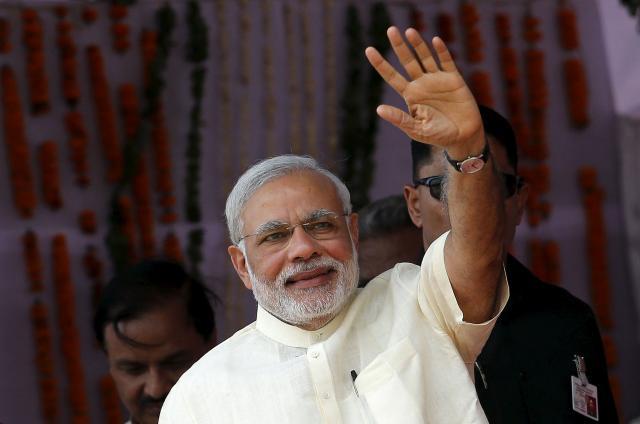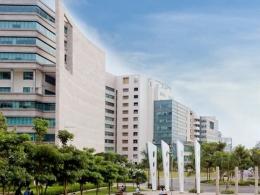Prime Minister Narendra Modi officially launched three ambitious schemes on Thursday named Smart Cities Mission, Atal Mission for Rejuvenation and Urban Transformation (AMRUT) and Pradhan Mantri Awas Yojana (earlier Housing for All) as part of the urban transformation drive.
While these schemes were announced earlier, the government also came up with guidelines related to the same on Thursday as part of the formal launch.
As per the guidelines, public private partnership (PPP) shall be the key to resource mobilisation for all these schemes.
Potential Smart Cities and AMRUT cities will be based on an objective and equitable criteria giving equal weight to urban population and number of statutory cities in each state or union territory. In the case of housing scheme, it will be implemented in all the 4,041 statutory cities/towns in the country, the government said.
To avoid delays and non-completion of projects on account of lack of resources, states and union territories will now be required to firmly indicate resource tie-ups under state level action plans.
Consultations with urban citizens have been made mandatory to ensure
need-based and bottom-up planning of projects. However, it is not clear what the mode of implementing such a consultation would be.
Here goes the guidelines for each of the schemes:
Smart Cities
For smart city development, each selected city will be provided central assistance of Rs 100 crore per year. The government has kept a minimum area of 500 acres for retrofitting, 50 acres for redevelopment and gave a size of 250 acres for greenfield projects. For North-Eastern and Himalayan states, the criteria would be half of these.
The smart cities projects would need to derive 10 per cent of energy needs from renewable sources, 80 per cent of building construction needs to be green or eco-friendly and it calls for 35 per cent of housing in greenfield projects to be for economically weaker sections (EWS).
The guidelines also talked about setting up inter-departmental task force to coordinate all aspects of smart city development and creation of special purpose vehicles in equal ratio between states and urban local bodies for implementation of smart city plans.
For choosing 100 capable cities to be developed under the smart city plan there will be a two stage competition with nomination to be sent by all the states and union territories. Cities will be weighed on the basis of existing services levels, institutional systems and capacities, self financing and past track record with respect to the existing national scheme of Jawaharlal Nehru National Urban Renewal Mission (JNNURM).
In the first round, 20 top scorers will be chosen for financing during this financial year. The remaining would be asked to make up the deficiencies identified for participation in the next two rounds of competition. Forty cities each will be selected for financing during the next rounds of competition.
AMRU
Under this scheme, only those projects which have all the approvals and the land, will be included in the mission by states or union territories. Allocation of funds will be as per urban population and number of cities/towns in each state and union territory.
Once the central government transfers the funds for a project to states, it should be moved to urban local bodies within seven days failing of which may lead to action by the centre.
"Instead of penalising states/ULBs for non-implementation of reforms by linking fund release with progress on reforms resulting in delays, the guidelines now provide for incentivising reforms by earmarking 10 per cent of annual allocation to be allocated to good performers at the end of each year," the government said.
The central government will contribute one-third of project cost or half of projects related to water supply, sewerage, septage, storm water drains and urban transport. States have to mobilise the balance with its own share being not less than 20 per cent.
In the next four years, 11 reforms will be implemented including promoting e-governance, improving collection of various taxes, fee and user charges, augmenting double entry accounting, constitution and professionalisation of municipal cadre, preparation of GIS-based master plans, devolution of funds and functionaries to urban local bodies, review of building by-laws, setting up financial intermediaries for pooling and disbursement of resources, credit rating of urban local bodies, energy and water audit and achieving milestones under the clean India mission.
Pradhan Mantri Awas Yojana (Urban)
This would be based on the number of urban poor and slum dwellers. According to the guidelines under this scheme, the prime minister said houses of 30 sq mt will be built for the poor and the ownership will be in the name of woman or jointly with her husband. Under affordable housing in PPP model, 35 per cent of houses shall be for the economically weaker section and the minimum project size shall be 250 houses.
The central government will provide a grant of Rs 1 lakh on an average per house which can be used by states for any slum redevelopment project.
There will also be an interest support at the rate of 6.5 per cent to be paid soon after sanction of loan to the beneficiary so as to bring down monthly instalments.
Central ministries/agencies will also take up slum redevelopment projects on their lands without charging for it and will be eligible for central grant. Under in-situ slum redevelopment, private developers would be chosen through open tendering and they would be responsible to provide transit accommodation during the construction period.






